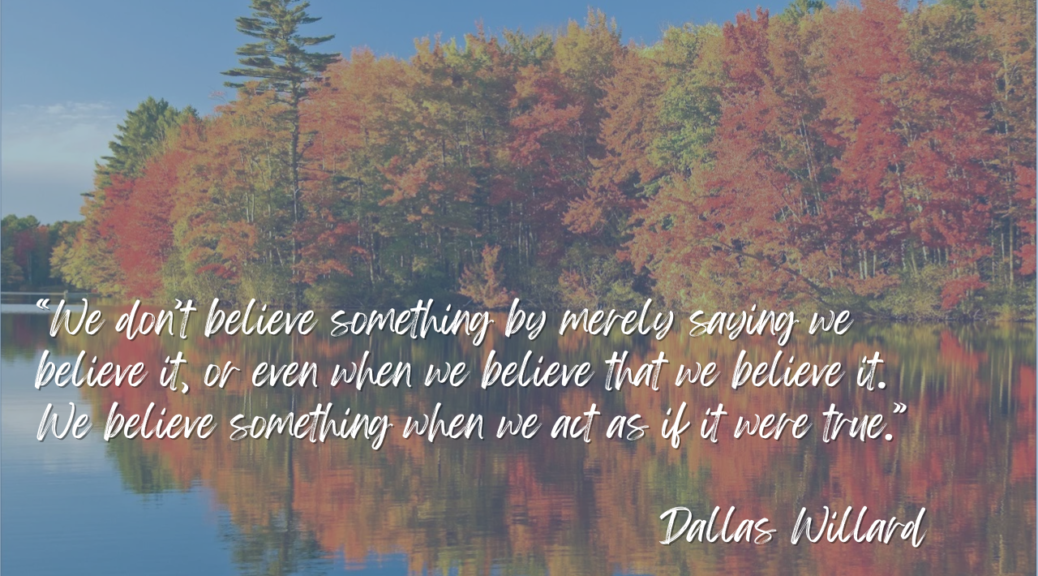
Are you an Atheistic Christian?
This past Sunday I shared the last 4 of the 5 pillars of Jesus Collective. The 4th pillar, “The Holy Spirit empowers us to partner with God’s work of reconciling all things” implies that in the task of restoring, healing and redeeming our broken world that we are called to, we are not able to do so on our own and, thankfully, are invited into partnership with the “Helper” (Holy Spirit) to work together in this. This is a beautiful concept that speaks to the desire of relationship and partnership as the means through how God achieves God’s ends.
It also had me reflecting on my own practice of faith. If you were at church, you may recall I mentioned I had this tendency to practice “Atheistic Christianity.” A term I came up with to mean that I might make the right professions of faith (depending who you ask 😉) but I struggle so often to live out that profession of faith in a way that actually requires faith. By the way, I’m defining “atheist” here as someone who doesn’t hold faith in God. Unbeknownst to me, this is a term that sort of already existed and actually means pretty much the exact opposite from what I meant. This article talks about “Christian Atheists” as being people who practice the rituals and traditions of the Christian faith yet deny belief in a theistic God. In my use of this term, I’m fine to have the look of a good Christian and to be seen as one by others but the part about trust that takes us from confessional to incarnational is where I get hung up. Relatable?
Dallas Willard writes, “We don’t believe something by merely saying we believe it, or even when we believe that we believe it. We believe something when we act as if it were true” (emphasis mine). This reminds me of the demons that James uses as an object lesson on his discussion of faith. He points out that “even the demons believe and tremble” (James 2:14. In other words, the “faith” of demons is useless, even though they tremble at what they know to be true. I can’t help but think that those of us who say we “believe” in God while failing to trust him beyond our own capabilities have a level of “belief” akin to demons. Yikes.
The thing is, we can do a lot on our own. As a whole, humans are capable, competent, progress-driven creatures – even on our own steam. What distinguishes us from the world is the call to trust God beyond our abilities, particularly in this work of reconciling all things. Like I said, this work is no easy task which is why we’re told the Holy Spirit is there to help. So how do we become more consistently dependent on the Holy Spirit? My experience, for what it’s worth, has been there’s no formula or 3-step program here. But, if it were any kind of process, it might look like beginning with the stark acknowledgement of a tendency to confess belief without trust followed by a willingness to take tiny steps of trust, of putting our neck out there in ways that we can retreat if need be; things like being willing to pray for our enemies, giving some cash to work being done in our own community that is involved with reconciliation in all its forms or maybe even intentionally having a necessarily awkward but real convo with a friend or family member. All of these small things matter and, I think, are ways we can begin to partner with the Helper, moving us away from Atheistic Christianity and toward Jesus-centred Christians.
(Adapted from the Grassroots’ Church weekly newsletter for September 25-October 1, 2023)